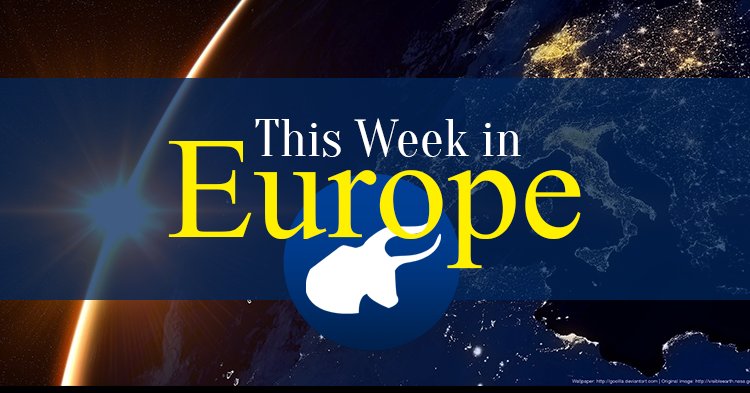Juncker secures tariff U-turn from Trump
European Commission President Jean-Claude Juncker visited the White House on Tuesday to meet US President Donald Trump. In contrast with Trump’s earlier measures to restrict trade with the European Union in steel and aluminium, the meeting concluded with agreement on reducing barriers to trade. This came after Jean-Claude Juncker reportedly “used colourful flash cards to explain trade policy to Trump”.
Steve Bannon to support the far-right in EP elections
Donald Trump’s former political strategist Steve Bannon is planning to support far-right parties in next year’s European Parliament elections, in an effort to weaken the European Union. After nationalist and conservative parties’ fragmentation into different European parliamentary groups in 2014, “The Movement” will seek to unite anti-EU groups and boost their electoral success to create an anti-EU majority in the European Parliament.
The move did not come without controversy. While moderate parties rejected the idea across the board, even some far-right politicians rejected the idea of such American influence in European politics. On BBC, European Studies expert Alexander Clarkson pointed to the anti-Americanism of many of Europe’s populist parties as a hindrance to the plan.
Extradition to Poland no longer mandatory if there’s a risk of unfair trial
Remarkably, the European Court of Justice ruled that European courts may deny requests to extradite a Polish citizen for a trial in Poland. Such a decision may be taken if problems in the Polish justice system in general create a risk of unfair trial, and if the citizen in question would be liable to receive unfair treatment.
The legal question arose as the Irish High Court had refused to give a Polish citizen suspected for drug trafficking to Polish courts’ hands for fear that the person would not get just treatment in Poland. Human rights organisation Human Rights Watch welcomed the ECJ’s decision, speculating that the ECJ decision might alert the Polish government to the consequences of its assault on judicial independence in the country.
Spanish PM Pedro Sánchez loses key budget vote in Parliament
In the Spanish Parliament, Social Democratic Prime Minister Pedro Sánchez’s minority government lost a vote on Sánchez’s plan to balance the country’s public accounts. Instead of supporting him, his left-wing and Catalan nationalist allies abstained in the vote, sparking debate over the government’s stability. Pedro Sánchez has only been Prime Minister for some two months, since the collapse of conservative Mariano Rajoy’s government.
The fiscal plan in question was to be a key part of Spain’s plan to exit the EU’s excessive deficit procedure next year, as Spain’s deficit has this year gone under the 3% of GDP threshold. The government is expected to make another attempt to pass a plan through the Parliament.
Bulgarian court declares anti-domestic violence convention ‘unconstitutional’
On Friday, the Bulgarian Constitutional Court ruled that the Istanbul Convention is unconstitutional. The Istanbul Convention, a Council of Europe agreement, is intended to combat violence against women, including domestic violence. Bulgaria remains one of nine EU member states that have failed to ratify the convention. Beside the rejection by the court, it was anticipated that the Bulgarian Parliament would not be favourable to the ratification of the agreement.
New UK Foreign Secretary says EU would be blamed for no-deal Brexit
Jeremy Hunt, who became the British Foreign Secretary after Boris Johnson’s resignation, has suggested that the British public would blame the rest of the EU in the event of a cliff-edge, no-deal Brexit. The comments came as a gridlock in the UK’s internal politics continued, with disagreement within the ruling Conservative Party remaining rife.
Later in the week, the European Commission’s chief negotiator Michel Barnier rejected the UK’s newest proposal for a customs relationship, citing the EU’s will to ‘maintain control of its money, law and borders.’


Follow the comments: |
|
